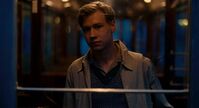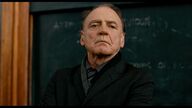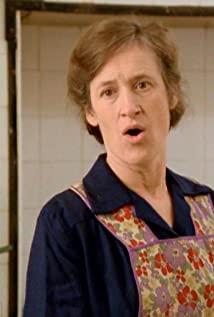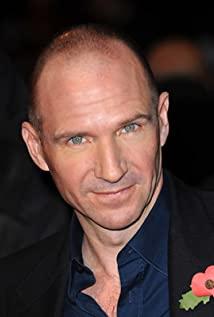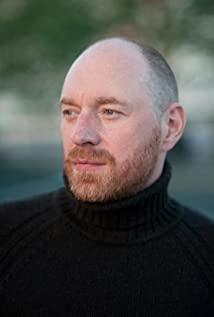Kate Winslet, who practiced her acceptance speech in the bathroom with a shampoo bottle at the age of 8, finally got a real statue at the Oscars. This is also the only award that "The Reader" (also translated as "The Reader") won at the Oscars this time. In 2008, when the best film was doubled, such a gain is enough to prove its strength.
Compared with a movie like "Slumdog Millionaire" that has a bright ending and an uncomplicated story, "Life and Death", which is regarded by some film critics as highly "moral ambiguous", has no chance of winning the Oscars. How many people can accept the love between a female Nazi and a teenager? Coupled with the shadow of the Holocaust, the pain of the world in the past is too heavy for people who are now in economic crisis. But there are always some memories and feelings, hidden deep in people's hearts, that need to emerge and need to be told. In particular, a story that is placed at an ethical extreme like "The Life and Death" can sharpen people's hearts. Steven Dedley tells the story in a delicate and powerful way.
The first half of the film seems to be reminiscent of a story like "Piano Lesson" or "Farewell to the Classroom." In post-World War II Berlin, teenager Michael Berg falls in love with a woman older than himself, tastes the forbidden fruit and explores the feelings of the body under the guidance of women. At first Michael didn't even know that the person who helped him and made him feel warm on the street when he fell ill was called Hannah. Hannah's hobby is having Michael read for her, from "Odyssey," "Woman with a Puppy," to "War and Peace." Then suddenly one day, Hannah disappeared from Michael's life again.
And in the second half, Michael happens to re-see Hannah in the courtroom where Nazi war criminals are being tried: a former guard in a concentration camp. Other guards put the blame on her, and she took the greatest responsibility for keeping her illiterate secret and was sentenced to life imprisonment. A scene from the courtroom trial is often regarded as one of the highlights of Winslet's performance: the judge asks Hannah why she would rather let the prisoners burn to death in a locked church than let them out, and she replies excitedly, "We are responsible for them! What if they run away?"
Writing here can not help but mention a Jewish philosopher, she and the heroine in the film, both named Hannah, Hannah • Arendt, she devoted her life to the study of ethics and political science. As a special correspondent for The New Yorker, she traveled to Jerusalem to observe the trial of Eichmann, who played a pivotal role in the Nazi Holocaust, and later edited and published Eichmann in Jerusalem. After the book was published in the early 1960s, it caused great controversy, and some even thought she was defending the Nazis.
In the book, she developed a famous concept: "banal evil". That is to say, those Nazi war criminals are not the murderous demons people imagine, they have their own lives, they obey orders, and do their best to complete the task, even if the task is genocide. Their sin lies in mediocrity, in their lack of imagination and their inability to have their own opinions. And this Hannah in the movie can almost be used as a footnote to this concept. Had the film been made in Arendt's time, it would have caused no less controversy than the book. In fact, just like Michael in the film, when he proposed to understand Hannah in the classroom, his classmates shouted "understand what?" in righteous indignation. This film also faced criticism. Even though nearly 70 years have passed, as long as the Holocaust is mentioned, there will still be huge shadows roaring from the sky.
Hannah, played by Winslet, is an excellent employee in a variety of agencies. However, because of her illiteracy, every time she was promoted and had to write a report, she would resign to keep her little secret, so she went from Siemens to a concentration camp as a guard. She was not insensitive, and when she went on outings with Michael, the children in the church sang hymns that brought her to tears. In addition to her terrifying love affair with the teenager, her moral values would lead her to scold the teenager for being "shameless" when she heard books like "Lady Chatterley's Lover". She is not a bloodthirsty demon either. She likes to listen to people reading novels and is moved by other people's stories. Even in a concentration camp, she will find someone to read aloud for her. Although she will pick weak women and children into the gas chamber first, but she believes that these have nothing to do with herself, "what I think is not important." What she cares about is the little dignity she has left, and she is careful not to let others know that she is illiterate, even if she pays the rest of her life as a price.
The films directed by Dedley are always very delicate, whether it is "Out of My World" or "Every Moment", there is a grace in it. So even though the film has a somber vibe with the cool yellow tones common to Francis Bacon's paintings, people can't help but be drawn to Hannah and Michael's relationship. The original author of the novel, Benhard Schlink's original intention was to express the German post-war generation's feelings about war and its relationship with war, and to express the issues related to everyone, such as "love, shame, lies, justice". .
A childhood relationship suddenly turned into a face-to-face confrontation with the Nazis who participated in the Holocaust in court. Such a sea change had a great impact on Michael. It would take a long time for Michael to reveal his secret to his daughter, and this secret completely affected him for the rest of his life, making him unable to face his wife and family. He recorded his own reading tapes and sent them to prison, while Hannah slowly learned to read and write. In the first half of the film, his body is inspired and controlled by Hannah, and he writes poetry for her but never hears from her. In the second half, Hannah relied on the tapes he sent to get through day after day in the cellar, writing to him but never heard back.
Maybe it's because of Hannah's role that it has too much shocking effect on people. Michael, as the narrator, seemed a bit bleak. Before Hannah is released, Fiennes finally musters the courage to visit her in prison. The heavy makeup in that scene couldn't hide the gleam in Winslet's eyes, but the gleam dissipated immediately when Michael asked her if she was reflecting on the past, which is probably how dramatic it was. In fact, in the book, the introspection plot is not asked, but for most people, maybe this is the question they want to ask Hannah. But after many questions are raised, it is difficult to get satisfactory answers. Just like the question of forgiveness about the Holocaust, it has become a widely discussed academic issue, but it will always be discussed. Just as after Hannah committed suicide, Michael disposed of her savings according to her will to donate to the survivors of the Holocaust, and the victim who seemed to live a safe life still couldn't face it, "I can't take it, Because I accept it means I forgive."
In the book, Hannah is not as isolated in prison as she is in the movie. She has joined the "public life" as Arendt puts it, and she is quite prestigious. And she also reads various books about the Holocaust, which in the movie are only veiled at her feet as she kills herself. It's hard to say who's right or wrong when it comes to the treatment of books in movies and novels, because after all, the more literate Nazis are also "banal villains".
For people who are accustomed to appreciating the black-and-white concept of good and evil, and the normal bright and positive feelings, such a film can even be called obscure. But the world itself is actually not so clear and easy to identify, with all kinds of ambiguous boundaries. Maybe someone will be angry at Michael's difficulty facing Hannah, maybe someone will be confused by Hannah's unreflection. But maybe it wasn't as easy as those we watched on the sidelines thought. And shooting such a subject seems to be what Dedley is best at. Instead of giving you a fast food, he will give you an olive.
------ Too board is right. . . Because it is work for the owner. . . .
View more about The Reader reviews





